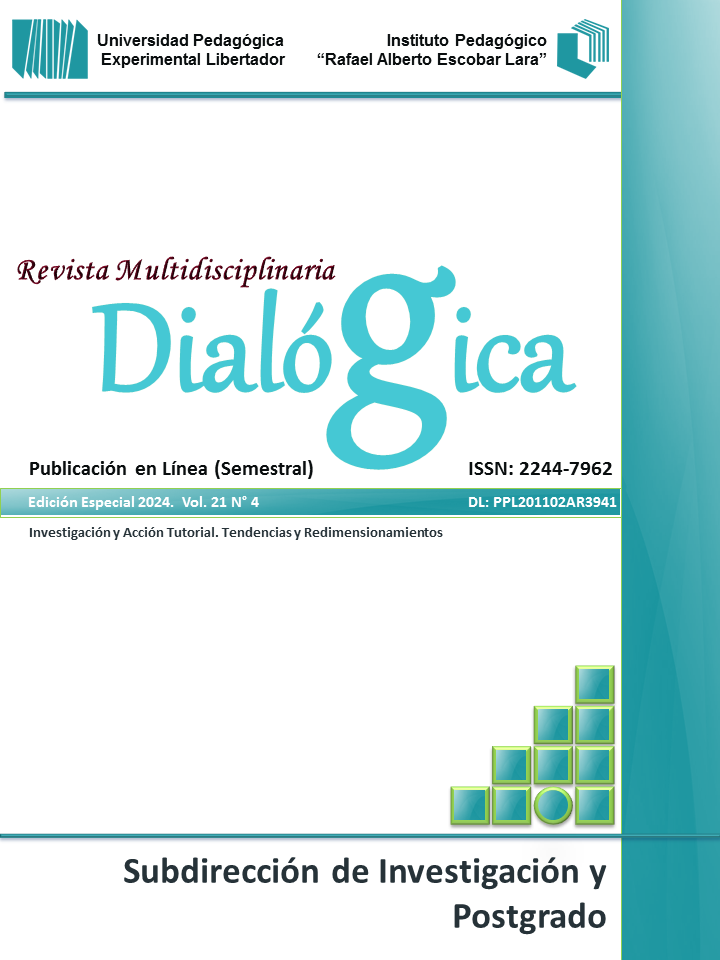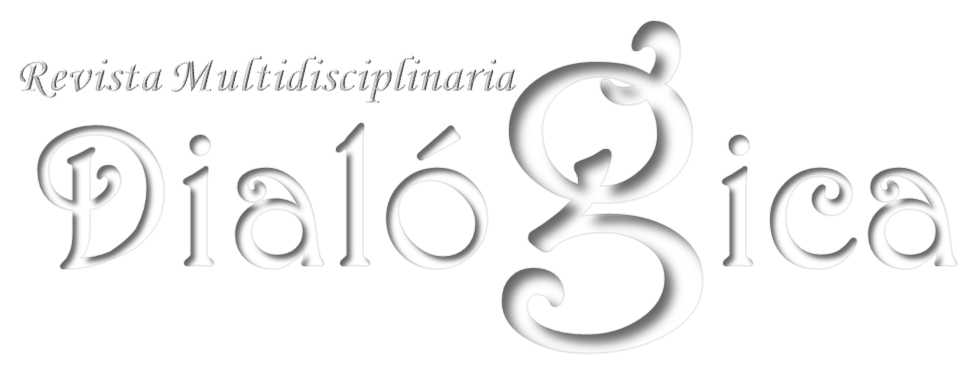TUTORIAL DIDACTIC OF INTELLECTUAL PRODUCTION WITH ARTIFICIAL INTELLIGENCE TOOLS. TIMES OF CHANGE
DOI:
https://doi.org/10.56219/dialgica.v21i4.3319Keywords:
Knowledge, didactics, artificial intelligence, innovationAbstract
The technological revolution has impacted society, allowing it to evolve with great advances in all fields of knowledge. This research is immersed in virtuality, with special emphasis on artificial intelligence. This study proposed to reflect on didactics by accompanying university students to investigate the originality of intellectual production from the tools of Artificial Intelligence. Among the emerging premises are that intellectual products assisted with artificial intelligence give rise to a new form of originality where reality and knowledge merge in a technological ether and a form of innovation emerges with new modes of science production. It is concluded that this experience does not replace the researcher and he must assume an ethical commitment in its use. In effect, whoever does research finds or advances to a new era of transhumanism.
References
Bell Rodríguez, R. F., Orozco Fernández, I. I., y Lema Cachinell, B. M. (2022). Interdisciplinariedad, aproximación conceptual y algunas implicaciones para la educación inclusiva. UNIANDES Episteme, 9(1), 101-116. https://dialnet.unirioja.es/descarga/articulo/8298181.pdf
Hermoso, V. (2022) Tendencias de la investigación en UBA hoy. Un enfoque traslúcido. Revista Investigación y Creatividad. 19(2), https://revistasuba.com/index.php/INVESTIGACIONYCREATIVIDAD/article/download/171/113/222
Hernández-Sánchez, A., Quijano, R. y Pérez, M. (2019). La formación digital del estudiante universitario digital: competencias, necesidades y pautas de actuación. Hamut ́ay, 6(1), 19-32. http://dx.doi.org/10.21503/hamu.v6i1.1572 DOI: https://doi.org/10.21503/hamu.v6i1.1572
Matute, L. J. y Rodríguez, Z. P. (2020). Práctica investigativa: diferentes tiempos y visiones en la formación universitaria. Educare, 24(1), 303-319. https://revistas.investigacion-upelipb.com/index.php/educare/article/view/1249/1244 DOI: https://doi.org/10.46498/reduipb.v24i1.1249
Renaud Maita, C. (2024). La actitud transdisciplinaria: dos respuestas distintas a una misma pregunta. Cuadernos del Cendes, 41(115), 159-161. https://bit.ly/46Vyb1K
Rodríguez Chávez, M. H. (2021). Sistemas de tutoría inteligente y su aplicación en la educación superior. RIDE Revista Iberoamericana para la Investigación y el Desarrollo Educativo, 11(22). https://doi.org/10.23913/ride.v11i22.848 DOI: https://doi.org/10.23913/ride.v11i22.848
UNESCO (2021). Beijing Consensus on Artificial Intelligence and Education. https://unesdoc.unesco.org/ark:/48223/pf0000368303
UNESCO (2023). La Inteligencia Artificial en la Educación. https://www.unesco.org/es/digital-education/artificial-intelligence
UNESCO (2024) Observatorio Global de Gobernanza y Ética de la IA. https://www.unesco.org/ethics-ai/en?hub=32618
Universidad Católica Luis Amigó. (2024). Lineamientos éticos del uso de herramientas de inteligencia artificial (IA) en la investigación y la producción intelectual. https://www.funlam.edu.co/uploads/fondoeditorial/790_Lineamientos_eticos_del_uso_de_la_inteligencia_artificial.pdf
Downloads
Published
How to Cite
Issue
Section
License
Copyright (c) 2024 Yesenia Centeno de López, Maite Marrero Salas

This work is licensed under a Creative Commons Attribution-NonCommercial-ShareAlike 4.0 International License.


 @revistadialogica
@revistadialogica DialogicaUPEL
DialogicaUPEL RevistaDialogicaUPELMaracay
RevistaDialogicaUPELMaracay dialógicaupel@gmail.com
dialógicaupel@gmail.com dialogicaupel.blogspot.com
dialogicaupel.blogspot.com https://issuu.com/dialogicaupel
https://issuu.com/dialogicaupel https://revistas.upel.edu.ve/index.php/dialogica/
https://revistas.upel.edu.ve/index.php/dialogica/









